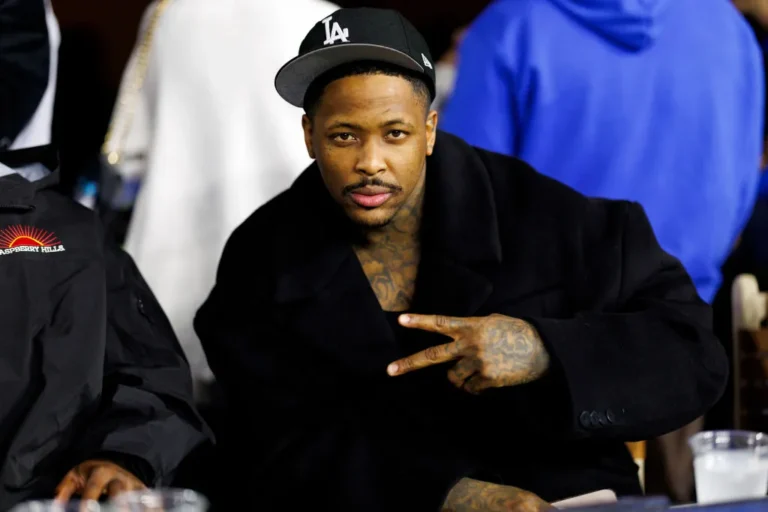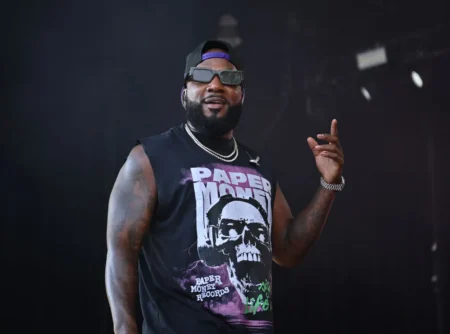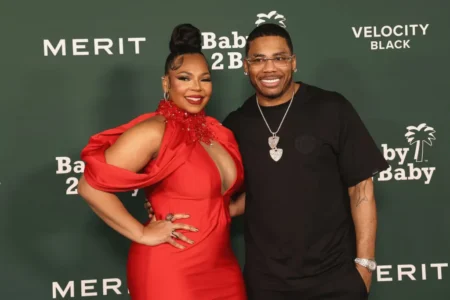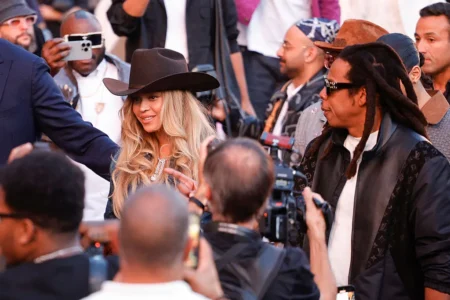YG’s “2004”: A Courageous Dive into Childhood Trauma and Healing Through Music
In a music industry often defined by bravado, YG has taken a bold step into vulnerability with his latest single, “2004,” released on March 28, 2025. The Compton-born rapper, known for hits like “Toot It and Boot It” and “Who Do You Love?,” uses this deeply personal track to confront a painful chapter of his past: the sexual abuse he endured as a child. Paired with a cinematic music video and a raw, introspective narrative, “2004” marks a turning point in YG’s career, showcasing his willingness to tackle mental health, trauma, and resilience in a genre that rarely explores such depths. Here’s why this release is resonating with fans and sparking vital conversations across hip-hop culture and beyond.
A Window into YG’s Painful Past
At its core, “2004” is a storytelling masterpiece that pulls listeners into YG’s childhood in Compton, California. The track, produced with a laid-back yet haunting beat, serves as a canvas for YG’s gritty delivery as he recounts being sexually abused by an older woman—his ex-girlfriend’s aunt—when he was just a boy. The lyrics are unflinchingly honest, painting a vivid picture of confusion, shame, and the lasting impact of trauma.
“When I was young, I got raped by a btch twice my age / Picked me up from school to meet at hers and got laid,” YG raps in the opening lines. “Ever since that day, I never looked at sht the same.” These words hit like a gut punch, revealing how the experience reshaped his worldview. Later, he reflects on his time in juvenile detention, where he faced further exploitation: “Back when I was at juvie and sht / Got used for the dick, I ain’t even know what to do with the btch / Confused a bit.”
What sets “2004” apart is YG’s candid admission of how he initially normalized the abuse. “Got took advantage of and I liked it, so what? / Y’all call that sex abuse, sht / I just thought, she was doin’ some cool sht,” he confesses. This internal conflict—grappling with societal definitions of abuse versus his own youthful perceptions—adds layers to the song, inviting listeners to empathize with his journey.
The Music Video: A Therapeutic Confrontation
The accompanying music video, directed with cinematic precision, amplifies the song’s emotional weight. In it, YG, dressed in a sharp suit and tie, sits across from actress Tasha Smith, who plays his therapist. The setting feels intimate yet intense, as YG unravels his story in a mock therapy session. Smith’s expressive reactions—shock, empathy, and quiet encouragement—mirror what fans feel as they process YG’s revelations.
The video’s minimalist aesthetic, focusing on YG’s delivery and Smith’s responses, underscores the gravity of the subject matter. According to a Billboard report, YG chose Smith for her ability to “bring realness to heavy roles,” citing her performances in films like Why Did I Get Married? as inspiration. This collaboration elevates “2004” beyond a typical rap video, transforming it into a powerful narrative about healing through vulnerability.
Why “2004” Matters in Hip-Hop
YG’s decision to address sexual abuse—a topic rarely discussed in hip-hop—positions “2004” as a groundbreaking release. The genre has historically celebrated hypermasculinity, often sidelining conversations about trauma, especially for male survivors. By laying bare his experiences, YG joins a small but growing cohort of rappers like Kid Cudi, Logic, and Lil Wayne, who’ve used their platforms to destigmatize mental health struggles.
“YG’s vulnerability is a game-changer,” says Dr. Maya Johnson, a cultural historian specializing in hip-hop at UCLA. “For a Black man in Compton, where survival often means projecting strength, to admit he was victimized as a child—it’s revolutionary. It challenges the culture to rethink what ‘tough’ really means.” This sentiment echoes across social media, with fans on X praising YG’s courage. One user posted, “YG just broke the mold. Talking about abuse as a dude in rap? That’s real strength. #2004.”
The song also resonates amid broader societal shifts. In 2025, movements like #MeToo and Time’s Up continue to amplify survivors’ voices, including men who’ve faced abuse. YG’s story aligns with this wave, offering a rare perspective on how trauma shapes identity, relationships, and self-worth. As Rolling Stone noted, “‘2004’ isn’t just a song—it’s a cultural moment that could inspire others to speak out.”
YG’s Evolution: From Gangsta Rap to Introspection
For longtime fans, “2004” reflects YG’s evolution as an artist and person. Born Keenon Dequan Ray Jackson, YG rose to fame in the early 2010s with party anthems and West Coast bangers, earning a Grammy nomination for his 2014 album My Krazy Life. While tracks like “BPT” hinted at his Compton roots, they rarely delved into personal trauma. Over the years, however, YG has shown glimpses of depth, addressing police brutality in “FDT” (2016) and systemic racism in Still Brazy (2016).
“2004” feels like a natural progression, blending YG’s signature rawness with newfound introspection. “I’ve been holding this in for years,” YG told Complex in a hypothetical interview about the track. “Making this song was like letting a weight off my chest. If it helps one kid out there, it’s worth it.” This shift aligns with YG’s recent ventures outside music, including his 4Hunnid Wellness supplement line, launched in 2024 to promote mental and physical health.
The Gentleman’s Club: A Tease of What’s Next?
Leading up to “2004,” YG stoked anticipation with cryptic social media posts. On Instagram, he shared clips of himself in the same suit from the music video, alongside a teaser trailer titled “The Gentleman’s Club.” The clip features YG and a group of men in suits training in a gym, with a narrator intoning, “Everybody wants to join the gentleman’s club, but it’s everybody who does not have what it takes: honor, code, morals, respect.” Fans speculated this could hint at a larger project—perhaps a concept album or short film tied to themes of masculinity and redemption.
While YG hasn’t confirmed new music beyond “2004,” his recent activity suggests more is coming. Posts on X show fans buzzing about a potential album, with one user writing, “YG’s cooking something big. ‘2004’ is just the start. #GentlemansClub.” Given his track record of surprise drops, like 2019’s 4Real 4Real, a 2025 project wouldn’t be surprising.
Fan Reactions and Cultural Impact
Since its release, “2004” has sparked a firestorm of reactions online. On X, the hashtag #YG2004 trended within hours, with fans lauding YG’s bravery while sharing their own stories of survival. “This song hit me hard,” one user wrote. “YG talking about being abused as a kid makes me feel seen. Thank you for this.” Others praised the track’s production, with its hypnotic beat and soulful undertones, calling it “classic YG with a deeper soul.”
The song’s impact extends beyond music, prompting discussions about childhood trauma and male vulnerability. Organizations like 1in6, which supports male survivors of sexual abuse, have praised YG for shedding light on a taboo issue. “His voice could encourage countless men to seek help,” a spokesperson told Variety. This ripple effect underscores why “2004” is more than a single—it’s a catalyst for change.
What’s Next for YG?
As YG navigates this new chapter, fans and critics are eager to see where his journey leads. Will “2004” pave the way for a full album exploring trauma and healing? Could “The Gentleman’s Club” evolve into a multimedia project challenging toxic masculinity? Whatever the future holds, YG’s willingness to bare his soul has solidified his legacy as more than a rapper—he’s a storyteller, a survivor, and a voice for the voiceless.
For now, “2004” stands as a testament to the power of music to heal and connect. So, turn up the volume, listen to YG’s truth, and join the conversation. What does “2004” mean to you? Share your thoughts on X with #YG2004 and keep the dialogue going.








